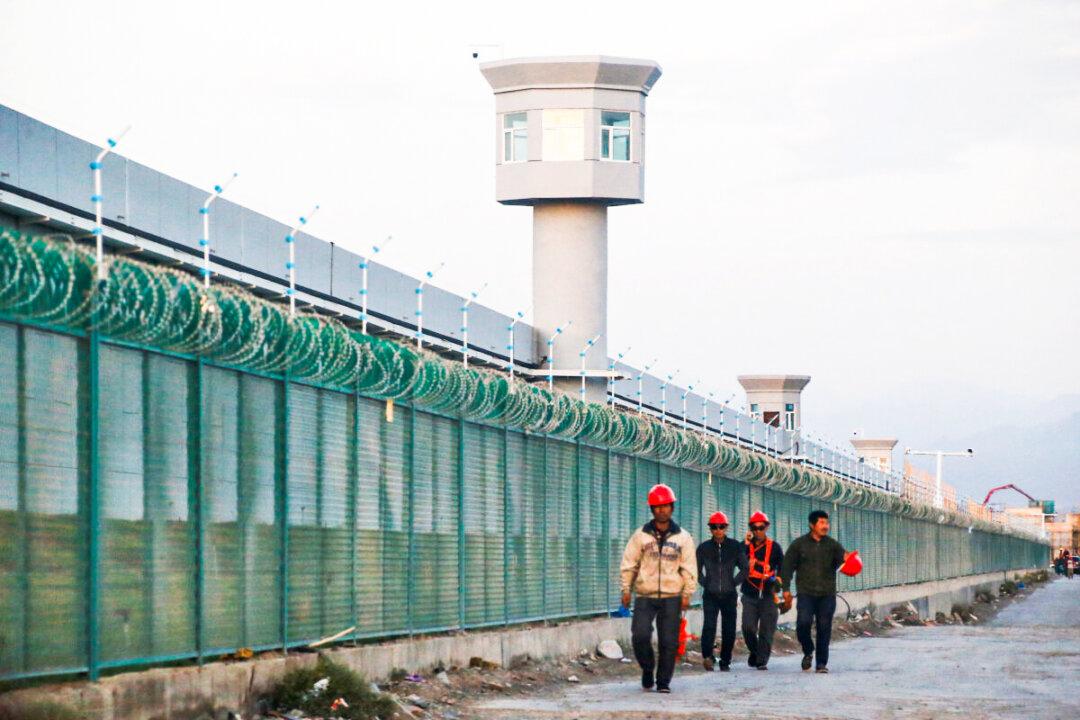Socially responsible funds have gained a lot of attention in recent years but millions of Americans still own stocks of companies that are tied to genocidal regimes and have no idea how to spot them in their investment portfolios.
Fund management firms don’t provide enough transparency to their customers about their holdings, according to human rights advocates, therefore most investors don’t know whether their portfolios are free of companies that substantially contribute to genocide or crimes against humanity.
This has increasingly become an issue for investors, especially holding Chinese securities via passively managed exchange-traded funds.
Meanwhile, investment management funds in the United States and around the world hold shares of Chinese companies that support the Communist regime’s military and security apparatuses, and aid its human rights abuses.
“The PRC [People’s Republic of China] is increasingly exploiting United States capital to resource and to enable the development and modernization of its military, intelligence, and other security apparatuses,” Biden continued.
While these measures are monumental, the U.S. government has been slow in responding to the growing threat posed by the communist regime, according to China hawks in Washington.
Because the U.S. government “wants to rock the boat as little as possible for fear of economic backlash,” Browder said.
The Treasury’s investment ban list so far includes 59 companies that are operating in the defense and surveillance technology sectors. Americans are barred from investing in stocks or bonds of these firms.
The ban list includes notable companies such as telecoms equipment maker Huawei, video surveillance manufacturer Hikvision, chip maker Semiconductor Manufacturing International Corp., aerospace firm Aviation Industry Corp. of China, and state-run mobile operators China Mobile and China Telecom.
While denying Chinese firms access to the U.S. capital markets is an important step, the ban list itself is not extensive.
In June, the administration tasked the Treasury Department with updating the list. However, the Treasury has failed to add new companies, even though there are many more entities that threaten U.S. national security, according to critics.
For example, there are over 400 Chinese entities in the Commerce Department’s “entity list,” which bars exports of U.S. technology to these firms without a license. Those entities were added due to national security concerns or over their role in facilitating Beijing’s rights abuses.
Only less than 1 percent of these companies has ended up on Treasury’s investment ban list, Roger Robinson, former chairman of the congressional U.S.-China Economic and Security Review Commission, said at the China Forum.
Critics also question the scope of the entity list as there are many small Chinese companies that go unnoticed.
“We’re talking about 5,000 Chinese companies in the portfolios of roughly 150 million Americans,” Robinson said, referring to all Chinese stocks trading in the United States or other exchanges around the world, as well as over-the-counter markets.
And the American investors don’t know how many of these companies are human rights violators or national security abusers, he noted.
Meanwhile, the U.S. Congress is working on a measure to remove non-compliant Chinese companies from American exchanges starting in 2022. The bill, Accelerating Holding Foreign Companies Accountable Act, that passed the Senate unanimously in June is expected to move through the House soon.
U.S. regulators, including the PCAOB, have been unable to inspect audit papers of China-based companies, as Beijing has refused to allow inspections, citing national security and privacy reasons.
The follow-up bill sponsored by Sen. John Kennedy (R-La.) seeks to put more pressure on Chinese companies, requiring them to comply with U.S. audit standards within two consecutive years instead of three.
U.S. exchanges must ensure American investor money is not used to finance Beijing’s human rights abuses and genocide, says Chris Iacovella, CEO of American Securities Association that represents small and regional financial services firms.
By passing the bipartisan bill, “congress can continue to protect investors, the integrity of our markets, and our national security,” he said.





